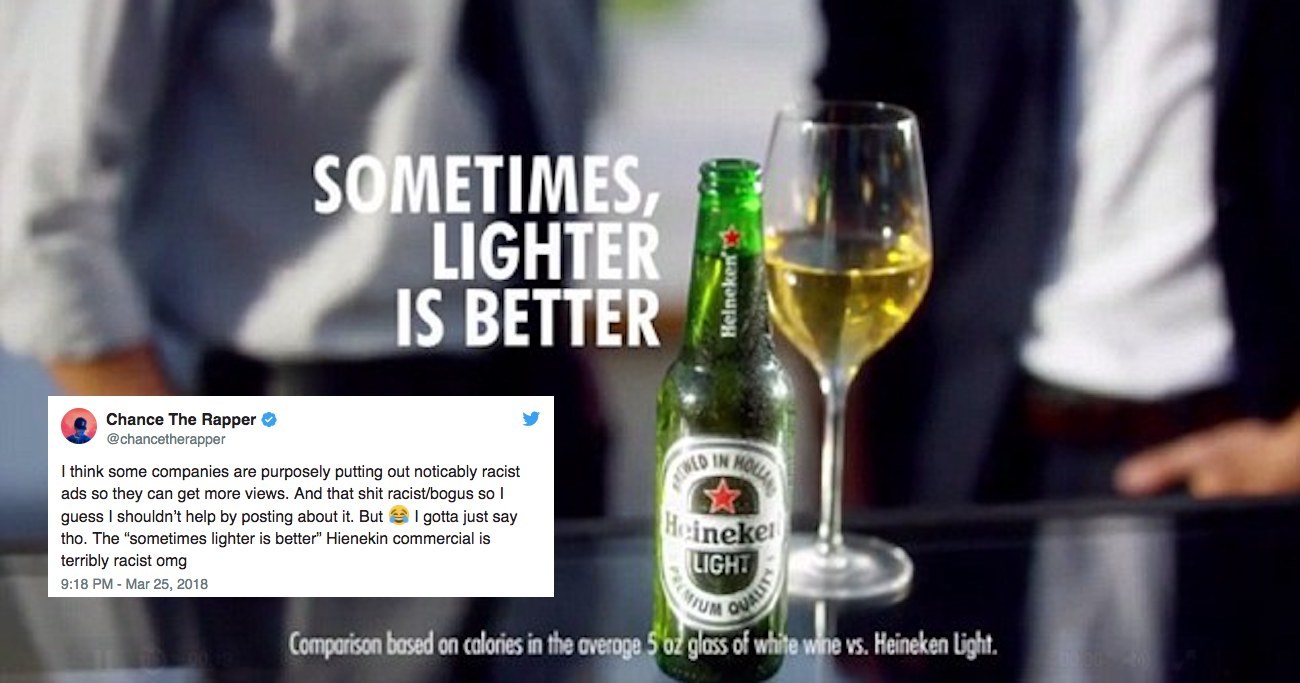Is Heineken Racist?
Companies love it when their latest advertisements are so buzzy they make the regular news—unless it’s because a celebrity has tagged them as racist. That happened this week when Chance the Rapper called Heineken’s weird new add “terribly racist.”
In the ad, a vigilant bartender spots a faraway female patron gazing disappointingly at a wine glass. Quickly, he opens a beer bottle and slides it down the bar. On its journey over multiple surfaces, the bottle skates past two black women and a black man before stopping at the wine glass. The phrase “sometimes, lighter is better” flashes on screen before the woman, who has lighter skin, inspects the bottle.
The ad is a misfire on a number of levels, but whatevs. The real question floating around the ether (and social media) was whether this was an intentionally racist ad. Such are the times we live in!
Of course it was not.
Racism is really bad business, especially for an international brand with operations in Africa. It is impossible to imagine executives at Heineken sitting around a conference table scheming about how to put a coded racist ad into play. Because ... Gerry Wilders? Trump? Marine Le Pen? It is literally unimaginable.
What is imaginable is a botched effort at the reverse—trying to create a scenario in which people of many races are gathered together. This is routine now, and the intention is pretty clear: to appeal to people (i.e. customers) of all races. And that's good! It's great that advertisers no longer use white people as a default setting. But this also creates an opportunity for clumsy or obtuse use of race in which an ad with the catchphrase “lighter is better” becomes a powder keg.
If you want to see evidence of racism in this ad, consider its presence by absence. Had there been more people of color in that conference room, someone might have pointed out the potential racial valence of “lighter is better.” They would have been very attuned to that tag line twinned with images of any people of color and seen how it invited a racial interpretation. Ads of this type don’t indicate racist intent, they indicate racial homogeneity of their creators. (This is all speculative, of course. But if there were people of color working on this campaign and at the greenlighting-level of Heineken's marketing team, I have no idea how to explain the existence of this ad.)
Which is to say that while Heineken is exonerated of the worst charges against them, they are not entirely free of blame. It would be a good moment to consider how much diversity exists among decision-makers and how blind the company may be to future avoidable gaffes.
